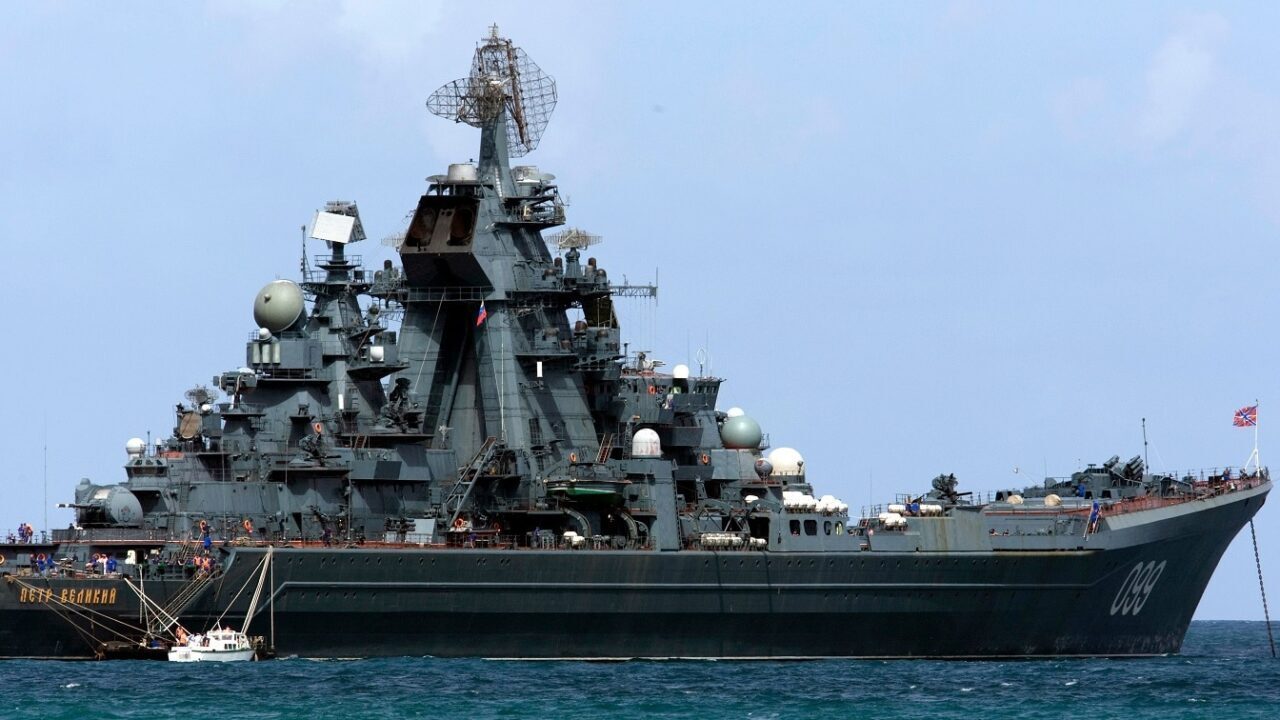Russia’s decision to abrogate the Black Sea Grain Initiative has brought the naval war firmly back into focus.
Russia has determined to ensure that Ukraine and much of the rest of the world suffer as much of the costs of the war as possible, and has thus far been resilient to multilateral efforts to re-establish the deal. For its part, Ukraine is trying to diversify its shipment options while also issuing threats against Russia. What’s the future of the War in the Black Sea?
The Strategic Situation
For about a year Russia and Ukraine agreed to a set of procedures under which each could export grain through the Black Sea and (in Russia’s case) from other ports. This deal was brokered by the United Nations (with Turkey playing a significant role) and was intended to reduce the global impact of a conflict that few had foreseen would extend longer than several months.
Russia’s inability to displace the Kyiv government or capture Odessa meant that Ukraine would continue to try to export grain, giving the country a commercial lifeline despite severe economic pressure. However, Moscow has evidently come to the conclusion that Ukraine benefits inordinately from the deal, that the commerce in grain has reduced pressure on Ukraine’s backers, and that Russia cannot take advantage of its own commercial opportunities because of difficulties with Western shipping and insurance firms.
Interception and Grain Infrastructure
What can the Russians do, in a physical sense, to disrupt the grain trade? The damage to Russia’s Black Sea Fleet has undoubtedly introduced some complications, as it has become hazardous for Russian surface ships to safely stop and search ships on the way to and from Ukrainian ports. The operation of such ships in traditional shipping lanes would make them extremely vulnerable to attack from Ukrainian aircraft, cruise missiles, and drones.
But Russia certainly has options for inflicting damage on grain vessels. Ukraine as of now has little or no useful anti-submarine capability, meaning that Russian submarines can essentially do whatever they want. Ukraine would also struggle to extend an air defense umbrella over grain shipping corridors, meaning that Russia could conduct long-range anti-ship strikes. However, Cargo-laden ships could also enter protected Romanian, Bulgarian, and Turkish waters where Russian assets might fear to strike. Indeed, numerous ships have entered the Black Sea with the apparent purpose of picking up Ukrainian grain.
This is fine so far as it goes, but it has left Russia with the unpalatable option of setting grain-laden ships alight with missiles, or torpedoing them from submarines. Such activity is immediately reminiscent of German efforts to starve Britain in World War II, although the historically-minded might note that the US pursued the same strategy towards Japan. Russia has thus far avoided the spectacle of burning and wrecked grain ships.
However, In order to demonstrate its seriousness, Russia has launched cruise missile and drone attacks against Ukrainian grain transfer infrastructure and grain storage facilities, including both Black Sea and Danube ports. The attacks have inflicted some damage but obviously it is not economical in the long run to expend cruise missiles destroying grain. More worrying (and perhaps more indicative of Russia’s desire to demonstrate resolve), one of the attacks came maddeningly close to the border between Ukraine and Romania, the latter a NATO ally.
External Intervention
NATO could conceivably escort ships bound for Ukraine, as well as help manage any concerns with the shipping insurance industry. However, thus far no NATO countries have stepped forward, out of apparent concerns over escalation. Both Russian and Ukrainian mines would also pose some danger to NATO vessels operating in the area. NATO has certainly expressed no appetite for the direct defense of Ukrainian ports from Russia missile and drone attack. This makes diplomacy and economics the most likely avenues for bridging the impasse, but Russia has thus far rejected multilateral efforts to re-establish the Grain Initiative.
What’s Next in the Black Sea?
The Russian blockade of Ukrainian grain, along with the sanctions against Russian grain production, have increased food insecurity around the world. Not all Ukrainian grain ends up in the poorest of countries, but every shipment held up and every facility destroyed by Russian missiles drives up the global price of food.
This should serve to demonstrate that there is no such thing as an isolated war; Russia’s invasion of Ukraine necessarily involved the entire world, whether directly or indirectly. The question is whether the global community will bow to Russian intimidation or take further steps to ensure Ukrainian survival and prosperity.
Author Expertise
Dr. Robert Farley has taught security and diplomacy courses at the Patterson School since 2005. He received his BS from the University of Oregon in 1997, and his Ph. D. from the University of Washington in 2004. Dr. Farley is the author of Grounded: The Case for Abolishing the United States Air Force (University Press of Kentucky, 2014), the Battleship Book (Wildside, 2016), Patents for Power: Intellectual Property Law and the Diffusion of Military Technology (University of Chicago, 2020), and most recently Waging War with Gold: National Security and the Finance Domain Across the Ages (Lynne Rienner, 2023). He has contributed extensively to a number of journals and magazines, including the National Interest, the Diplomat: APAC, World Politics Review, and the American Prospect. Dr. Farley is also a founder and senior editor of Lawyers, Guns and Money.

